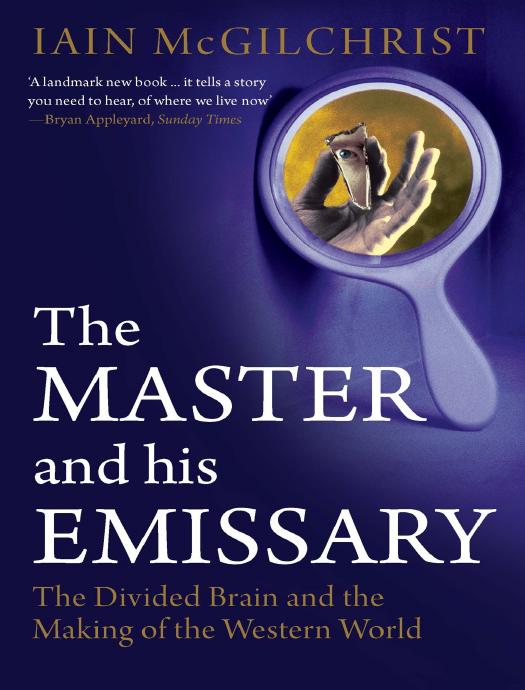The Master and His Emissary: The Divided Brain and the Making of the Western World by Iain McGilchrist

Author:Iain McGilchrist
Language: eng
Format: mobi, epub, pdf
Tags: Science, Philosophy, Psychology, Non-Fiction
ISBN: 9780300148787
Publisher: Yale University Press
Published: 2009-12-01T10:00:00+00:00
THE ROMANS
Most of the great legacy of Rome's literature belongs to the Augustan era, the first century BC, with Virgil, Horace, Ovid, Propertius and Catullus all writing during a period of fifty years of one another. Undoubtedly there is here a remarkable increase in psychological sophistication, and both touching and witty insights into human nature, its potential greatness and its failings. This period saw not just the expansion and codification of jurisprudence, but the establishment of an ideal of reasonableness and of moral rectitude in art and poetry as well. Virgil and Horace were obviously drawn by what one might see as Scheler's Lebenswerte: the ideal of the noble Roman emanates from their work. Virgil's attraction to and idealisation of the natural world,141 the importance of human bonds, both those of amor and those of pietas, coupled with his sense of pity for the passing of human lives and achievements – sunt lacrimae rerum et mentem mortalia tangunt142 – all suggests an alliance between the right and left hemispheres at this time, in which the right hemisphere primacy is respected. Ovid, a man who in his life had reason enough to contemplate the harsh reverses of fate, called his greatest work the Metamorphoses, the title itself suggestive of the Heraclitean flux; and in it once again one sees that standing back from the world which enables the finest spirits both to rise on the vertical axis and to venture out along the horizontal axis into the lived world of the human heart:
There is no greater wonder than to range
The starry heights, to leave the earth's dull regions,
To ride the clouds, to stand on Atlas’ shoulders,
And see, far off, far down, the little figures
Wandering here and there, devoid of reason,
Anxious, in fear of death, and so advise them,
And so make fate an open book …
… Full sail, I voyage
Over the boundless ocean, and I tell you
Nothing is permanent in all the world.
All things are fluid; every image forms,
Wandering through change. Time is itself a river
In constant movement, and the hours flow by
Like water, wave on wave, pursued, pursuing,
Forever fugitive, forever new.
That which has been, is not; that which was not,
Begins to be; motion and moment always
In process of renewal …
Not even the so-called elements are constant …
Nothing remains the same: the great renewer,
Nature, makes form from form, and, oh, believe me
That nothing ever dies… .143
Yet, alongside its great artistic achievements, which undoubtedly result from the co-operation of both hemispheres, Roman civilisation provides evidence of an advance towards ever more rigidly systematised ways of thinking, suggestive of the left hemisphere working alone. In Greece, the Apollonian was never separate from the Dionysian, though latterly the Apollonian may have got the upper hand. Augustus, who presided over the great flourishing of the arts, was the first Emperor; but as the scale of imperial power grew in tandem with the evolution of Roman military and administrative successes, the Apollonian left hemisphere begins to freewheel. The Roman Empire was ‘characterised by its towns and cities’,
Download
The Master and His Emissary: The Divided Brain and the Making of the Western World by Iain McGilchrist.epub
The Master and His Emissary: The Divided Brain and the Making of the Western World by Iain McGilchrist.pdf
This site does not store any files on its server. We only index and link to content provided by other sites. Please contact the content providers to delete copyright contents if any and email us, we'll remove relevant links or contents immediately.
| Anatomy | Animals |
| Bacteriology | Biochemistry |
| Bioelectricity | Bioinformatics |
| Biology | Biophysics |
| Biotechnology | Botany |
| Ecology | Genetics |
| Paleontology | Plants |
| Taxonomic Classification | Zoology |
Sapiens: A Brief History of Humankind by Yuval Noah Harari(14371)
The Tidewater Tales by John Barth(12653)
Mastermind: How to Think Like Sherlock Holmes by Maria Konnikova(7324)
Do No Harm Stories of Life, Death and Brain Surgery by Henry Marsh(6938)
The Thirst by Nesbo Jo(6932)
Why We Sleep: Unlocking the Power of Sleep and Dreams by Matthew Walker(6706)
Life 3.0: Being Human in the Age of Artificial Intelligence by Tegmark Max(5550)
Sapiens by Yuval Noah Harari(5366)
The Body: A Guide for Occupants by Bill Bryson(5082)
The Longevity Diet by Valter Longo(5058)
The Rules Do Not Apply by Ariel Levy(4957)
The Immortal Life of Henrietta Lacks by Rebecca Skloot(4581)
Animal Frequency by Melissa Alvarez(4463)
Why We Sleep by Matthew Walker(4435)
The Hacking of the American Mind by Robert H. Lustig(4375)
Yoga Anatomy by Kaminoff Leslie(4359)
All Creatures Great and Small by James Herriot(4311)
Double Down (Diary of a Wimpy Kid Book 11) by Jeff Kinney(4261)
Embedded Programming with Modern C++ Cookbook by Igor Viarheichyk(4173)
